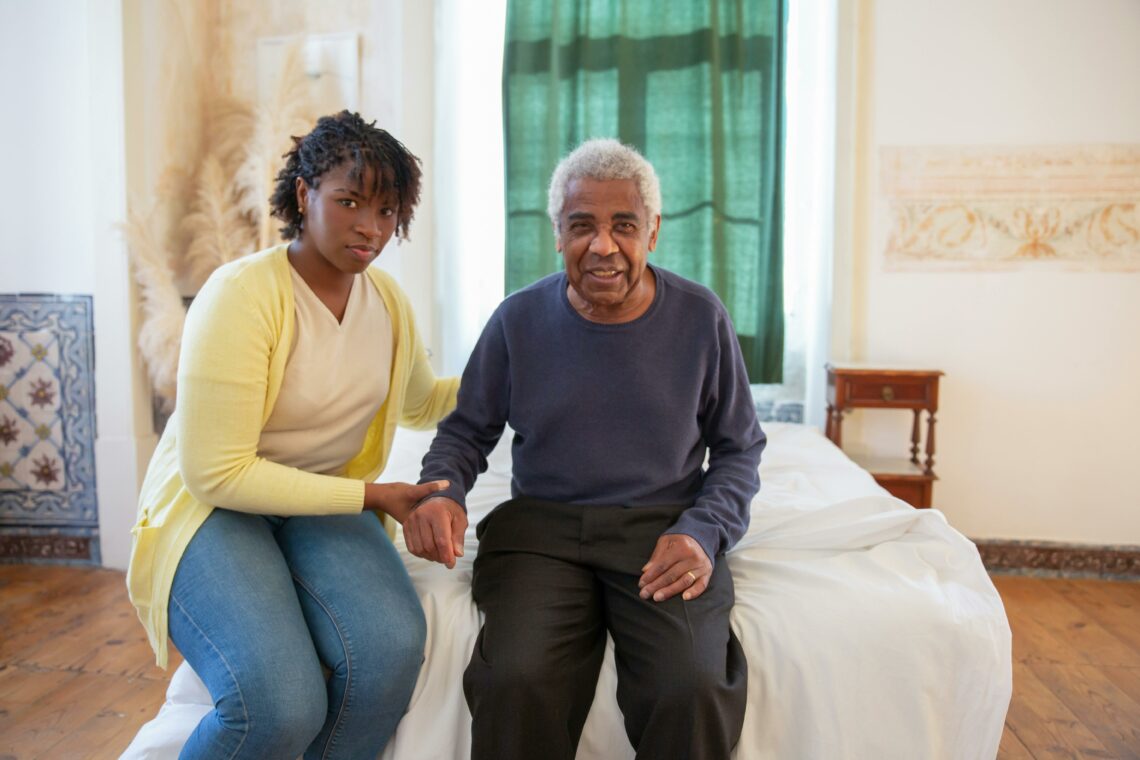People with dementia, as well as their loved ones, struggle with a variety of problems on a daily basis. The affected person experiences issues with their cognition and memory, which is confusing and frightening, while the family and friends around them need to stay vigilant, caring and attentive. More often than not, dementia comes with other health problems, and all that might result in the need for professional help. It is not only about the right hard skills. Frequently, people with dementia require constant (or almost constant) care, which their loved ones can’t provide because of their job or family responsibilities.While some people might still think that letting a stranger take care of a member of their family is not a good idea, such a way of thinking is slowly becoming a thing of the past. No one is abandoning anyone in these situations. Society’s perception of carers is changing along with the improvement of the quality of their services.There are also more possibilities available than traditional residential care or nursing homes.A popular alternative is live-in care. What’s the difference, and what is more beneficial to the elderly with dementia?
Traditional Residential Care Homes And Dementia Care
Traditional residential care homes have been around for a very long time, though they haven’t always brought up positive connotations. Due to underfunding and understaffing, facilities were sometimes subjected to criticism regarding neglecting their patients.That has mostly changed, though care services still need to be shared among care recipients.A care home is a place where a group of people live together, and nowadays, they usually have single rooms; for many elderly individuals, it might be a good idea to socialize regularly with people their age. Additionally, an advantage is that they have access to on-site services 24 hours a day and available support, such as help with washing or taking medication. Sadly, it is not rare that they have to wait because of the staff’s busy schedule.However, the situation might look a bit different for those struggling with Alzheimer’s disease or another form of dementia. They might get confused by groups of strangers, plus, they still need to share carers and services with other care recipients. Not to mention that it might not be that easy to find a place at a dementia care home straight away; there’s usually a waiting list. And it’s not possible to simply stop the regress of someone’s health.
Live-in Dementia Care Services
A live-in dementia carer is a trained specialist who knows how to support people with all forms of dementia; Alzheimer’s disease is the most common but hardly the only one.A dementia care provider moves in with their patients to provide 24/7 care and be able to offer support whenever there’s a need, whether it’s with household chores, such as cooking, cleaning or washing, or remembering medicine and exercise, as well as personal hygiene, bathing and dressing.It’s a much more beneficial solution, as it allows a person to live as independently as possible, which is a much-needed exercise for a mind with Alzheimer’s disease or another form of dementia; at the same time, they are in no danger of hurting themselves or forgetting to take medicine, as a qualified carer is always there, ready to step in and help. Furthermore, a care recipient is never neglected or left completely alone.A considerable advantage is that a live-in dementia care provider can find a qualified carer as quick as within 24 hours – and it will be a person with the right set of skills and even the right personality for a specific patient.
Is Live-in Dementia Care Better for People With Dementia?
When it comes to Alzheimer’s disease and other types of dementia, a lot of people seem to think that they have no choice but to place their elderly relative in a care home because they need 24-hour attention. However, not all those facilities are suitable for patients with such issues, as they require a whole different approach and set of specialists.Then, when a care home specializes in taking care of the elderly with dementia, their prices are usually higher. While you can’t put a price on your loved one’s comfort and safety, not everyone can afford it. And offering dementia care to your relative yourself is not an easy (if not impossible) task. You might have the best intentions but not all of the much-needed skills.What’s more, it might not be the most beneficial option, as people with cognitive and memory problems are easily disturbed. It doesn’t matter if you take them to your own house or place them in a dementia care home; they might still find it extremely difficult to adjust to a new environment, which can even negatively impact their condition.It might be a better idea to let an elderly relative stay at their home and preserve some of their independence. To retain health for as long as possible, a person needs to stay active, both physically and mentally. When someone is cared for 24/7, not living at their own home, it becomes easier to lose interest in things. Everything is said and done, so people become indifferent and apathetic. Everyone needs a purpose and stimuli in order to stay interested in life, be happy and keep fighting the disease, especially in the case of dementia.
That’s why the families are often determined to find a private carer, but the recruitment process might be long, tiring and complicated. After all, they want to be sure that their loved one is cared for by a skilled and empathetic person. It is not unusual for carers to develop a strong bond with their patients, and such a qualified friend can be a life-saver for both the elderly and their families. As such, it’s worth looking for the right person. At some point, most people with dementia will eventually need help even with the most intimate self-care; if there’s a close bond between them and their carer, the whole situation will be less embarrassing, and their dignity will be preserved.Here at HomeTouch, we understand how important and difficult it is, so we offer full services; we will provide you with a carer who is thoroughly checked. You can rest assured that your relative will be under the care of a specialist whose references and experience are verified. This way, your mind will be free of many worries, and the elderly will be able to stay in their love-packed, familiar environment.




